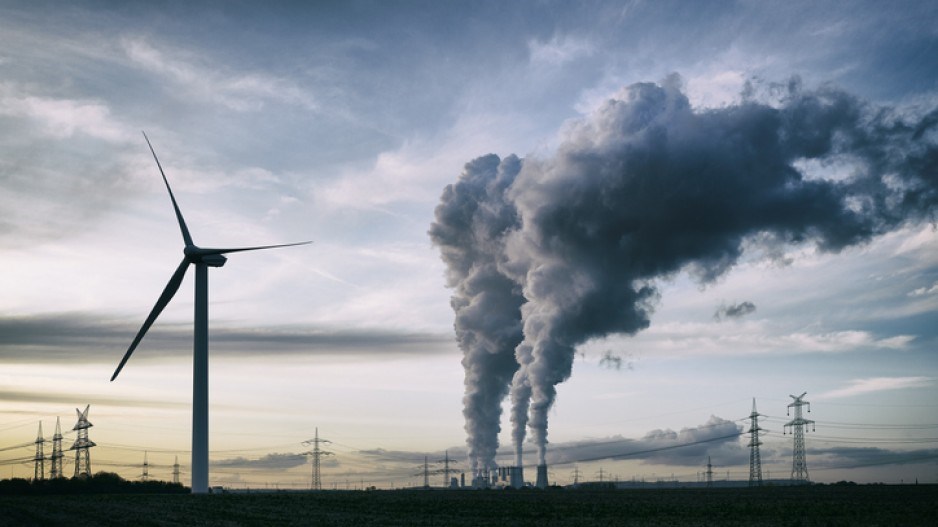Last week, the Intergovernmental Panel on Climate Change (IPCC) released its latest report synthesizing a consensus from over 10,000 scientific papers and the work of over 2,000 climate scientists. It is not a read for the faint of heart.
Or, as United Nations Secretary-General Antonio Guterres describes it, it is a “code red for humanity.” He added: “The alarm bells are deafening and the evidence is irrefutable” and “This report must sound a death knell for coal and fossil fuels destroying our planet.” We are likely to see a net increase in the mean global surface temperature of 1.5 degrees Celsius before the middle of the century.
Of course, it is not coal or fossil fuels which will result in the temperature increase but our continued combustion of this ancient carbon. We are returning carbon dioxide to the atmosphere which was sequestered by organisms millions of years ago. And in doing so, we are changing the concentration of carbon dioxide in our atmosphere.
It would be easy to point to the heat dome which engulfed British Columbia in late June and say “There’s proof. See the world is getting hotter” but that would be neither fair nor accurate. According to the report, “it is virtually certain that hot extremes (including heatwaves) have become more frequent and more intense across most land regions since the 1950s, while cold extremes (including cold waves) have become less frequent and less severe.” But to label any singular weather event as being caused by climate change is mixing climate and weather.
Still, the heat wave was another wake-up call. This is the sort of weather climate change will spawn and while we might not see another heat dome for years, similar phenomena are happening all over the world. The Middle East has recorded temperatures reaching into the 50 degrees Celsius range. That is dangerously hot.
We can look to the wildfires burning in British Columbia and around the world as a harbinger of things to come. As the climate changes, precipitation patterns will be altered. Less rain and snow mean less groundwater and drier conditions during the summer months. Our forests become tinder boxes waiting for a match to ignite a blaze. And yes, there are other issues involved with respect to forest management practices but the changing climate is seriously altering the fire cycle we have experienced for the past 100 years.
It is not just in British Columbia or California or the Midwest United States or even islands in Greece. Experts estimate the amount of land burning in Siberia adds up to more than the rest of the world combined. And that includes the fires which devastated the Amazon.
Ironically, the changing climate is also responsible for flooding in various parts of the world. Again, it isn’t the only cause, but it is a significant contributor. This is one of the issues the report tries to tease out. It uses phrases such as “virtually certain” and “high confidence” to try to distinguish data and analysis which can be causally linked to climate change. And it uses “low confidence” as well when warranted such as for the long-term trends in the frequency of all-category tropical cyclones.
The scientists who have gathered and compiled the data are trying to do their best to provide a scientifically nuanced report where levels of certainty, from statistical analysis, are expressed. Unfortunately, their language may just provide a loophole for the those who want to deny the reality of climate change to crawl through.
But the overall language of the report is very blunt. For example, there really isn’t any hesitancy to the statement “Observed increases in well-mixed greenhouse gases (GHG) concentrations since around 1750 are unequivocally caused by human activities.” As of 2019, the concentrations of the principle GHGs in the atmosphere have increased to annual averages of 410 ppm for carbon dioxide, 1866 ppb for methane, and 332 ppg for nitrous oxide in 2019. This is us. We have done this.
Further, “It is unequivocal that human influence has warmed the atmosphere, ocean and land. Widespread and rapid changes in the atmosphere, ocean, cryosphere, and biosphere have occurred.”
We know what the problem is. We are now facing the consequences squarely in the face. We really don’t need more studies telling us glaciers are retreating and forests are dying. What we really need now is to focus on how we proceed forward.
How do we wean our society off of fossil fuels? The answer is complicated because they are so intricately woven into all of our daily activities, whether it is firing up the barbecue, heating the house, driving to work or running a pulp mill.
What we need now is research which will facilitate that change and maybe a federal election is a good time to ask questions of our political candidates.

